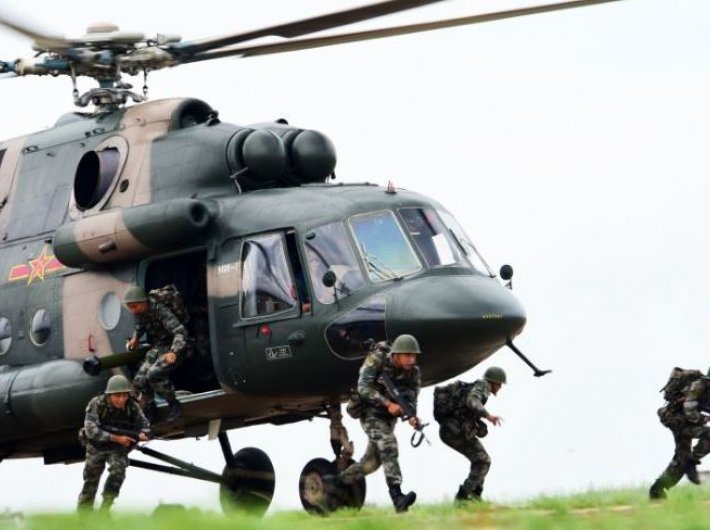In the Chinese calendar, August 1 and October1 are important days. August 1 is the foundation day for the Chinese army, while October 1 is the establishment day for the People’s Republic of China. Experts say these days have symbolical significance for China which celebrates them by showcasing its power to the world.
“Look at China’s approach towards India, particularly on the Sikkim sector. China’s Communist Party is doing its bits to project its country as very powerful in the world. So what can be better demonstration of power than this at Doklam. The more these important national events will inch closer, the more China’s aggression towards India would grow,” Brigadier (Retd) B D Mishra said.
In that case, will National Security Advisor Ajit Doval’s visit to Beijing on July 27-28 to attend BRICS’ NSA meet be of any significance?
“Yes, indications are that diplomatic and political efforts will be exerted to the utmost to de-escalate the tension with China in Sikkim sector. In this regard the ministry of external affairs spokesperson has already stated that all diplomatic channels are available between the two countries. Amid this, the NSA’s visit would be used as an opportunity to address whatever worries are there regarding rising tension between the two countries,” said China expert Alka Acharya.
There is so far no information on Doval’s schedule in China, except for the fact that he along with four other NSAs from China, Russia, Brazil and South Africa are likely to hold discussion on terrorism, cyber security and money laundering issues.
Nonetheless, India is keen to see that the situation at Doklam eases out as soon as possible and that diplomatic engagement between the two countries should continue in a friendly atmosphere. At the same time India is also determined to see that India-China engagement should return to normalcy without compromising the country’s territory.
But the Chinese media continues to harangue against India. Global Times, China’s tabloid English daily, raised the Kashmir bogey.
“If the Pakistani government requests, a third country’s army can enter the area disputed by India and Pakistan, including India-controlled Kashmir,” Long Xingchuan, director at the Centre for Indian Studies at China West Normal University said in his article in Global Times.
However, India snubbed China for its third party intervention remark. MEA spokesperson Gopal Baglay said: “As far as the Kashmir issue itself is concerned, the government’s position has been very consistent and clear. We have been ready to have dialogue with Pakistan but in a bilateral framework. That position of addressing all issues with Pakistan including the J&K issue in a bilateral framework has not changed.”
On July 13, in its op-ed page, China’s lone tabloid daily published an article which was highly provocative in its tone and substance. It said, “India uses Bhutan to stir up border tensions.”
This apart, China’s foreign and defence officials also don’t hesitate to drive a wedge in the two countries’ ties. In response to India-China face off in Doklam, foreign secretary S Jaishankar remarked in Singapore on July 11 that this was not the first time India and China had differences along the Line of Actual Control (LAC), “when they (border disputes) were handled well, I see no reason why India and China would not be able to deal with their current standoff”.
But China’s foreign ministry spokesperson Geng Shuang said the military face-off in the Sikkim sector was different from earlier border disputes. “China has pointed out many times that the illegal trespass into China’s territory across a mutually recognized border line is different in nature to frictions that happened in undefined sections of boundary.”
Experts scoff at arguments of those who say the border stand-off may turn into nuclear war between the two countries. “Nuclear war (between India and China) is unlikely because both adhere to no-first use principle,” Alka Acharya observed, adding that even in the worst case the two countries would not use tactical weapons against each other because they know both will suffer huge loses. “Border skirmishes can’t be ruled out, they may occur but not any kind of war,” she said.
Srikanth Kondapalli, professor at JNU’s Centre for East Asian Studies, too agrees that China would not try to impose a war on India. “Legal, media and psychological are three strands of Chinese warfare mechanism which were established sometime in 2005. By raising the bogey over India’s move at Doklam, they question New Delhi’s legality on an issue (Doklam). Then they allow their mouthpieces like China Daily and Global Times to mount pressure on India by arguing this and that. Under psychological warfare, they will undertake war game exercises here and there to show their readiness against the country. If India stands up to their pressure tactics, they would try to find out face saving way.”



